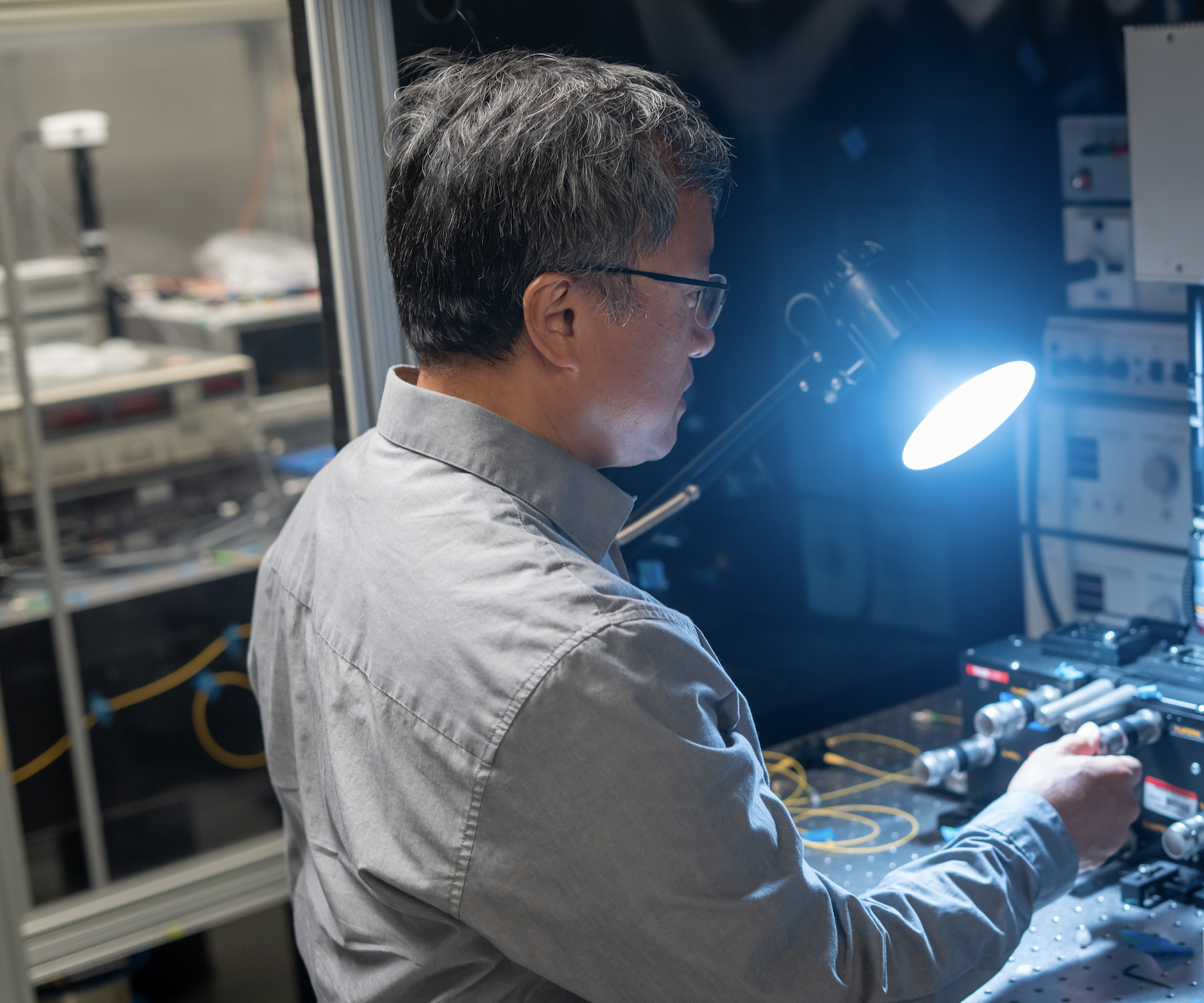“What we’ve done is create a module that takes someone from limited background in quantum information science and engineering to a working understanding of the core ideas that define the field,” Reano said. “It’s not just about teaching theory—it’s about giving students the opportunity to engage with the tools that will define the next era of computing.”
Reano piloted the module in the Department of Physics in the College of Arts and Sciences and integrated it into his Integrated Optics and Photonics course in the College of Engineering. He also offers summer short courses—open to Ohio State students and external partners—that allow participants to interact with the module in a single session.
“The short courses are open to practicing engineers, industry collaborators and students,” he said. “We take them from classical computing all the way to implementing a quantum teleportation protocol in just one day.”
The Intel Quantum SDK allows users to simulate quantum algorithms using classical computers, offering students and researchers a platform for experimentation even before quantum hardware becomes broadly available. Reano said the SDK is particularly effective in helping students understand the unique nature of quantum computing.
“In classical computing, you press enter and you get an output,” he said. “In quantum computing, you’re running a statistical experiment. You execute the same operation hundreds or even thousands of times to collect data.”
To drive that concept home, Reano has students run the same experiment repeatedly—by design.
“They press enter 100 times,” he said. “It’s a powerful way to show students that quantum systems behave differently than anything they’ve seen before.”
Reano received a second year of funding from Intel based on strong performance in the first year, allowing him to refine the curriculum and expand its use. With global investment in quantum research accelerating, he said now is the time to ensure students are ready for the future of the field.
“This is a fast-moving area,” Reano said. “All the major countries and technology companies are investing heavily in quantum computing because it offers the potential to address complex problems that are outside the capability of classical computers—especially in cybersecurity, chemistry, logistics and cosmology.”
Quantum computers rely on qubits, which can exist in multiple states simultaneously and can become entangled with one another—enabling certain types of calculations to be performed exponentially faster than traditional systems. Intel is developing spin-based quantum bits using quantum dot technology, and the SDK is designed to allow users to transition seamlessly to that hardware once it becomes available.
“Our students are using a simulator now,” Reano said. “But when the physical platform is ready, they’ll already know how to program it.”
Reano said the Intel award validates Ohio State’s commitment to preparing students for leadership in emerging technologies.
“This recognition highlights how experiential learning can connect students with the future of science and engineering,” he said. “It shows them that they’re not just learning about quantum—they’re doing it.”
